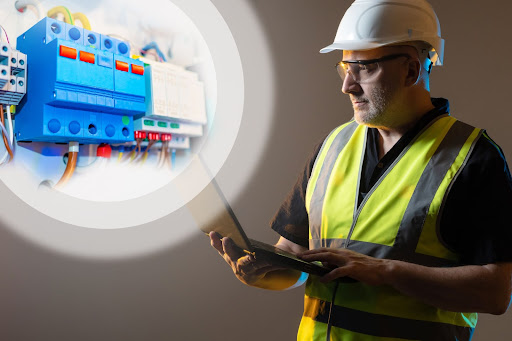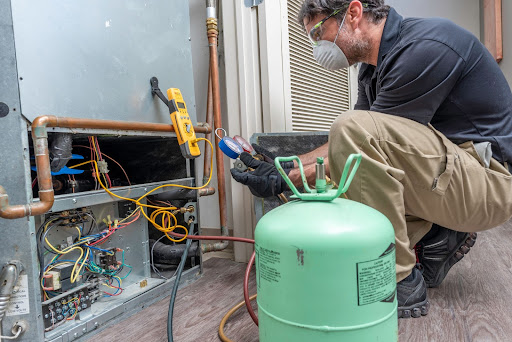
Does Home Inspection Include Inspecting The Electrical Wiring?
A home inspection is an important step before anyone even enters a home in order to determine whether or not the property is safe. While most ordinary inspections test for structural integrity and exterior factors like age, hazards, safety, and fire issues, they do not specifically test for electrical components in the home. Since electricity is a must nowadays to live in your own home, it would be worthwhile to take an extra step of checking the electrical system as well. This article helps break down what is being inspected by typical home inspectors and provides more information on specific areas that fall outside this typical inspection process.
There is no one definitive answer to this question, as each home may have unique features and specifications that would necessitate specific inspections of the electrical system. However, a general rule of thumb is that any proper home inspection should cover all aspects of the property, including the structure, plumbing, and mechanical systems.
If you’re uncertain whether a home inspection includes inspecting the electrical wiring, it’s best to ask your inspector directly. In most cases, they will be more than happy to provide you with an explanation of what type of inspections are included in their service. Local requirements or standards of practice.

Pros and Cons of an Electrical Home Inspection
Inspection services can be incredibly valuable for homeowners. Whether you’re just starting to worry about your home's overall condition, or you’ve been dealing with some annoying electrical problems, an inspection can provide a skewed perspective on your overall system. Here are the pros and cons of an electrical home inspection:
PRO: A trained professional conducting an electrical home inspection can identify potential safety hazards and deficiencies in your home electrical system. This is especially important if you have kids or pets at home, as faulty wiring could lead to accidents.
CON: An electrical home inspection won't always identify problems with your lighting or other fixtures. If you're dealing with basic light browning and flickering, for example, but don't see any obvious breaks in the connections, a professional may not be able to help you. Limited to easily accessible noninvasive n some cases
In the end, it's important to choose an inspection service that will cover the areas of your home that are most important to you. The health and safety of your family are worth taking the time to investigate.
The Different Options for a Home Inspection
A home inspection is an important step in purchasing a property and can include checking for many things such as structural issues, plumbing, and electrical systems. Inspectors typically spend a few minutes going around the house checking these areas, but what about the electrical wiring?
It’s important to have an electrician inspect the electrical wiring in a home if you plan to purchase it. Wiring can be dangerous if not installed properly, and any problems with electric wiring could cause serious problems down the line such as fires. Additionally, Electrical wiring can look good on the outside but be damaged internally, so getting an electrician to check it out is definitely worth it. Sometime not visible such as behind walls where specialized continuity equipment only found with licensed electricians.
Here are some other things you may want to consider before buying a home:
The water system - Check for leaks, corrosion, and water pressure
The roof – inspect for any signs of damage or potential leaks.
Inspect for radon (In some areas) – If you’re planning on moving into the home within the next few years, it’s important to know if it has high levels of radon.
Home insurance – Having your home inspected will help to identify any pre-existing issues
How to Get an Electrical Home Inspection Done
An electrical home inspection will check for several things in the home’s electrical system such as improper wiring, loose connections, and poor insulation. Electrical wiring can be especially dangerous if it’s not properly installed or if it’s corroded. Poor insulation can cause serious electrical fires.
Electricians also check line voltages and potential problems with other outdoor electrical equipment. So if you are thinking about getting an electrical home inspection, make sure to ask your electrician to do it, too.
What are C-BID Codes?
C-BID Codes are a set of standards used by in the electrical industry to identify wire types and terminations.
Cable housing is typically covered in insulation and fastened with screws or zip ties. Thermal protection, such as weather stripping, should be applied around cable penetrations. In cold weather climates, it is important to insulate wires up against the outside wall where they exit the house.
Electricians use C-BID codes to identify wires according to their size, type of insulation, and termination. Wires that are covered in the plastic sheath ( Awg. ) are considered telephone cables, while wires that are only covered in paper (PVC) are considered power cables.
While electricians will inspect the wiring for proper installation, home inspectors should also check for defects up within their scope. This will help identify any problematic wiring or conditions before it becomes a problem.
The Risks of a Home Inspection During Termites
Home inspections are an important way to protect yourself and your family from potential problems before they happen. First and foremost, running a home inspection during termite season is particularly risky. This is because termites or insects, rodents can potentially damage the electrical wiring in homes, resulting in dangerous electrical shocks or even fires. Additionally, failing to inspect the electrical wiring in a home could result in serious financial losses should a problem arise later on.
So, if you're considering having a home inspection done, make sure to include a check of the electrical systems as part of the overall inspection. Doing so will help you avoid potential dangers and ensure that you're getting expert advice on the best ways to protect yourself and your family.
Conclusion
Yes, electrical wiring can often be a neglected part of home inspection. But it’s important to ensure that all potential problems with the system are identified and addressed. This includes checking for frayed wire insulation, loose connections, and lack of current capacity. If there are any concerns with the electrical wiring in your home, have a qualified inspector as part of your home inspection.


.jpg)

